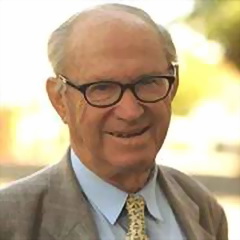Sigmund Widmer
( politician) | |||||||||||||||||||||||
|---|---|---|---|---|---|---|---|---|---|---|---|---|---|---|---|---|---|---|---|---|---|---|---|
 | |||||||||||||||||||||||
| Born | 30 July 1919 Zurich, Switzerland | ||||||||||||||||||||||
| Died | 11 August 2003 (Age 84) Visp, Switzerland | ||||||||||||||||||||||
| Nationality | Swiss | ||||||||||||||||||||||
| Alma mater | • University of Zurich • University of Geneva • Providence University | ||||||||||||||||||||||
Attended 1975 Bilderberg as Mayor of Zurich
| |||||||||||||||||||||||
Sigmund Widmer was a Swiss politician, historian and writer. He was Mayor of Zurich from 1966 to 1982.[1][2]
Early life
Sigmund Widmer was first a primary school teacher, then studied history and German in Zurich, Geneva and Providence (USA) until he received his doctorate. From 1949 he worked in Zurich as a secondary school teacher. As a militia officer in the Swiss Army, he rose to the rank of Colonel of the Infantry.
Political career
Widmer's political career began in 1950 when he was able to replace a representative of the Landesring der Independenten, Erwin Jaeckle, on the municipal council of the city of Zurich. Later, Sigmund Widmer became one of the best-known Landesring politicians alongside party founder Gottlieb Duttweiler.
In 1954 Widmer was elected to the Zurich city council, where he headed the building department. After the resignation of the FDP city president Emil Landolt in 1966, he became Mayor. The post-war construction boom took place during Widmer's time as mayor and head of the building department. Since there was no longer room for the city's steadily growing population, Widmer had municipal building cooperatives buy land in the surrounding communities with the help of the city in order to combat the lack of space.
However, some of Sigmund Widmer's projects for the city of Zurich also suffered spectacular shipwreck, such as the plan to hold the 1976 Winter Olympics or the project for the construction of the Zurich subway, which failed in referendums in 1969 and 1973 respectively. Since the beginning of the student unrest in 1968, Widmer's position between the Social Democrats and the right wing FDP become increasingly difficult. After a renewed escalation of violence after the opera house riots in 1980, which he found difficult to control, Widmer resigned in 1982 to make way for the "bourgeois turn" under Thomas Wagner.
In addition to his work in Zurich, Sigmund Widmer was a member of the National Council (LdU) from 1963 to 1966 and from 1974 to 1991. He chaired the Pro Helvetia Foundation and was appointed mediator in the Jura conflict by the Federal Council. To crown his career as a politician and historian, Widmer was allowed to deliver the commemorative speech at the 700th anniversary of the Swiss Confederation in front of the United Federal Assembly.
As a writer and historian, Widmer wrote numerous columns for Züri-Woche, smaller essays and books, including a 13-volume cultural history of the city of Zurich. He was no longer able to complete a six-volume epic entitled "Frey Family", only five volumes were published. He died on August 11, 2003 after a short, serious illness in the hospital in Visp and was buried in Zurich's Fluntern Cemetery.
Event Participated in
| Event | Start | End | Location(s) | Description |
|---|---|---|---|---|
| Bilderberg/1975 | 25 April 1975 | 27 April 1975 | Turkey Golden Dolphin Hotel Cesme | The 24th Bilderberg Meeting, 98 guests |
References
Wikipedia is not affiliated with Wikispooks. Original page source here